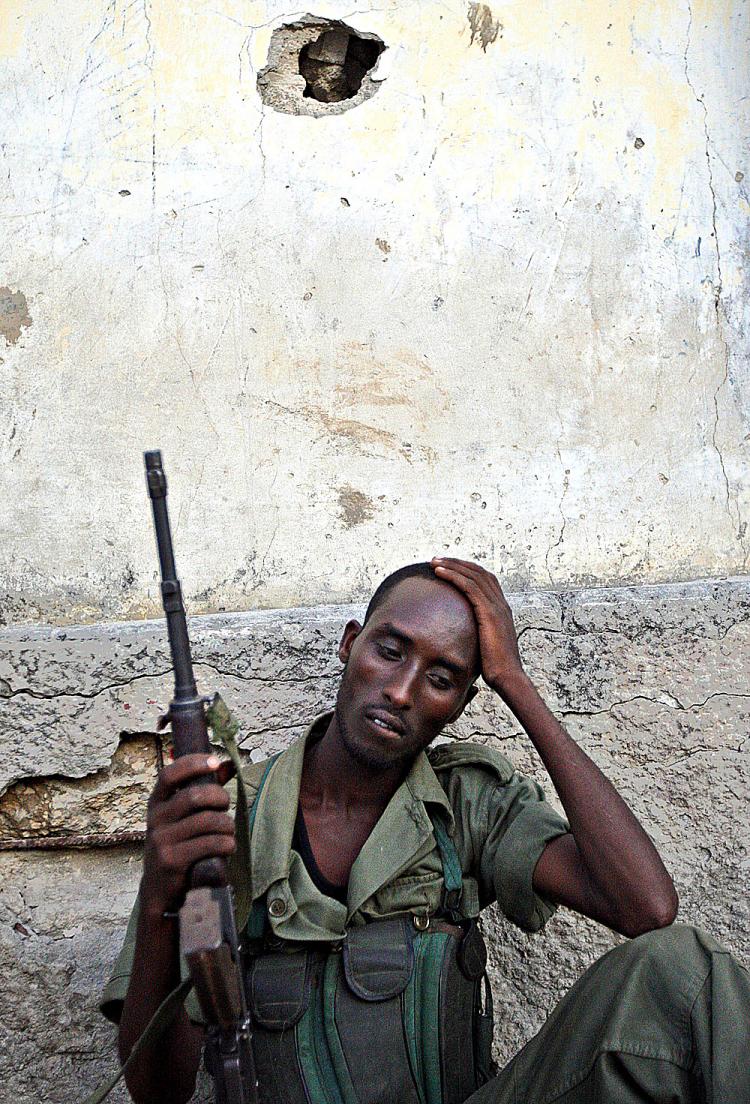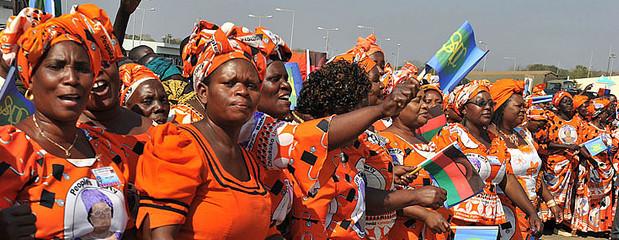Reporting Darfur: Radio Dabanga and the “˜black box’ genocide – by Eric Reeves

 In its eight-year battle to turn Darfur into a “˜black box,’ Khartoum is largely prevailing. The National Islamic Front/National Congress Party (NIF/NCP) little expected that the genocidal counterinsurgency war it launched in April 2003 would capture so much of the world’s attention – or that it would galvanize an extraordinary advocacy movement, which in turn helped prompt deployment of what was at the time the world’s largest humanitarian operation. Regular and informed reports from Reuters and other newswires; substantial newspaper accounts, with significant datelines in Darfur; frequent human rights reports; information from humanitarian organizations, particularly about rape as a weapon of war; reporting by the UN-authorized Darfur Panel of Experts on aerial attacks by Khartoum, each a violation of UN Security Council Resolution 1591 (March 2005) – all made it impossible for even a modestly attentive consumer of news to miss the human catastrophe that was unfolding in Darfur.
In its eight-year battle to turn Darfur into a “˜black box,’ Khartoum is largely prevailing. The National Islamic Front/National Congress Party (NIF/NCP) little expected that the genocidal counterinsurgency war it launched in April 2003 would capture so much of the world’s attention – or that it would galvanize an extraordinary advocacy movement, which in turn helped prompt deployment of what was at the time the world’s largest humanitarian operation. Regular and informed reports from Reuters and other newswires; substantial newspaper accounts, with significant datelines in Darfur; frequent human rights reports; information from humanitarian organizations, particularly about rape as a weapon of war; reporting by the UN-authorized Darfur Panel of Experts on aerial attacks by Khartoum, each a violation of UN Security Council Resolution 1591 (March 2005) – all made it impossible for even a modestly attentive consumer of news to miss the human catastrophe that was unfolding in Darfur.
By Eric Reeves
Today Darfur is largely invisible, as Khartoum has successfully expelled, silenced or denied access to all these reporting sources. The striking exception is Radio Dabanga, a remarkable indigenous Darfuri news network that provides a continuous stream of reliable information about humanitarian conditions and human rights violations in Darfur. While there are also occasional authoritative reports from Human Rights Watch, these are largely counter-balanced by the relentlessly disingenuous commentary that comes from UN and African Union officials. Indeed, comments by Georg Charpentier (the chief UN humanitarian official in Sudan) have either been misleading or outright lies; he has distorted through omission and has consistently failed to speak forthrightly about humanitarian conditions experienced by the people in Darfur. He is by no means alone.
The grim truth here is that if the international community is not broadly informed about how bad conditions in Darfur are, then the chances for renewed and demanding engagement are small. This does much to explain the absurd over-selling of the “˜peace agreement’ signed in Doha (Qatar) on July 15 by one small, cobbled together, unrepresentative, and politically and militarily powerless “˜rebel’ group, the so-called “˜Liberation and Justice Movement.’ Moreover, there is a real danger that the Doha agreement gives Khartoum an excuse to refuse further negotiations, thus excluding the more powerful rebel groups. Sadly, all this was evident from the beginning of the Doha process. And in the most ominous development, the agreement gives Khartoum a clear go-ahead for its “˜New Strategy for Darfur,‘ first promulgated last September and offering a grim final solution to issues in Darfur.
Notably, the “˜new strategy’ – recently given the more neutral and unrevealing name of the “˜Darfur Political Process’ – has been endorsed by Ibrahim Gambari, now the interim UN/AU special mediator for Darfur negotiations. His comments as a consequence take on particular significance, since he also still functions as head of the painfully ineffectual UN/AU Mission in Darfur (UNAMID) and must take responsibility for much of the peacekeeping mission’s failures. He continues the legacy of his predecessor, Rodolphe Adada, as well as the military commander of UNMID at the time Adada stepped down (August 2009).
On the occasion, the two departing leaders claimed that war in Darfur was over, and had devolved into a “low-intensity” security problem. General Martin Agwai, the Nigerian force commander, declared that “as of today, I would not say there is a war going on in Darfur,” but rather “very low intensity” engagements. “What you have is security issues more now. Banditry, localised issues.” Rodolphe Adada of Congo, Gambari’s predecessor, declared arrogantly, “I have achieved results” in Darfur. “There is no more fighting proper on the ground.” “Right now there is no high-intensity conflict in Darfur?. Call it what you will but this is what is happening in Darfur – a lot of banditry, carjacking, attacks on houses.”
How to put these claims in context? Human displacement is the best indicator, since it is so closely tied to violence against civilians in Darfur. The UN Office for the Coordination of Humanitarian Affairs (OCHA) estimated that in 2007 – when UNAMID began to build on the African Union Mission in Sudan (AMIS) force already in place – 300,000 people were newly displaced. In 2008, the first year in which UNAMID had a UN mandate as a force in its own right, OCHA estimated that 317,000 people were newly displaced. For 2009, the Canadian Peace Operations Monitor found that “over 214,000 people were newly displaced between January and June [2009] alone.” The total for this period of UNAMID deployment and execution of mandate, under Adada and Agwai, is thus well over 800,000. Nothing could belie more completely their August 2009 claim that security issues were “low-intensity” or that the only violence was merely “banditry,” “carjacking,” and break-in’s. (OCHA also estimates that more than 300,000 people were displaced, largely by violence, in 2010.)
Moreover, the assessments by Agwai and Adada failed to anticipate the violence initiated by Khartoum’s Sudan Armed Forces (SAF) the very next month in the Korma region northwest of el-Fasher in North Darfur. A major military offensive by the SAF and its Janjaweed militia forces began in early September, displacing thousands of civilians. Adada and Agwai also failed to see that the feeble Darfur Peace Agreement (DPA) was doomed to failure; the last vestige of the agreement collapsed in late 2010 when the only rebel DPA signatory, Minni Minawi, abandoned his sham role in the NIF/NCP regime. Fighting broke out almost immediately, and on December 10, 2010 violence exploded in the Khor Abeche area. Khartoum launched a massive military campaign, targeting rebels but also civilians of the Zaghawa tribal group in particular (Minawi’s ethnic group). Aerial bombardment of civilian targets has been relentless: approximately 90 confirmed attacks against civilians in Darfur in 2010, and so far this year more than 100 such attacks, with a great many casualties.
Despite this, Gambari claims that “considerable progress“ has been made since May during negotiations in Doha and that “violence is diminishing.” Neither is true, and it has become clear that rejection of the Doha agreement by rebel groups with military and political clout has been complete – as it has been by the majority of Darfuris able to speak freely. As to violence in Darfur, Gambari nowhere mentions (for example) the brutal massacre at the village market of Tabarat, North Darfur, on September 2, 2010. Some fifty men and boys were killed, at point blank range, by Janjaweed militia, armed and supplied by Khartoum. A series of interviews with survivors by a Reuters correspondent reveals the brutality of the attack was:
“Five survivors of the attack told Reuters that heavily armed Arab militia had targeted male victims and shot many at point blank range.”
“[M]en were rounded up by militia wearing military uniforms who rode into the market on horses and camels pretending to be buying goods before spraying the shops with gunfire. Then vehicles mounted with machine guns and carrying militia fighters appeared and rounded up some of the men, survivors said. ‘They laid them down and they came up close and shot them in their heads,’ [said] Abakr Abdelkarim [from] Tawilla, where many of the victims had sought refuge and medical help. ‘ (Those killed) were all men and one woman – some men were tied with rope behind the cars and dragged until they died.'”
The UN response is also highlighted:
“[Witnesses] said after the attack they had gone to the joint UN-African Union (UNAMID) peacekeeping base in Tawilla to ask peacekeepers to come to Tabarat but they refused. ‘They also refused to come and help us recover the bodies,’ [Adam] Saleh added.”
Not only did UNAMID refuse to move from their base at nearby Tawila to protect civilians (their key mandate), they refused to help recover the bodies of the dead and allowed Khartoum to block their investigators for many days, certainly time enough to sanitize the atrocity crime scene. And yet to this day there is no public account from UNAMID or Gambari about the Tabarat incident, the perpetrators, or the number of casualties. This is true for the vast majority of reported atrocities, and Darfur’s invisibility becomes less surprising.
Despite the silence and disingenuousness on the part of UNAMID and UN officials, we may learn a great deal about Darfur’s realities from Radio Dabanga and the Darfuri diaspora, as well as occasional human rights reports or humanitarian assessments based on the bits of information that do leak out. Human Rights Watch reported in January and again in June on the violence and human rights abuses that prevail in Darfur; the first of these reports does not comport at all well with Gambari’s optimism about the level of violence in Darfur:
“Sudanese government and rebel attacks on civilians in Darfur have dramatically increased in recent weeks without signs of abating, Human Rights Watch said today [January 28, 2011].”
But without question, the single most important news source—both for the consequences of violence and for specific humanitarian conditions – is Radio Dabanga, particularly in keeping before us the horror of an ongoing epidemic of rape (an issue never discussed seriously by UN officials, including Gambari), and relentless bombing attacks against civilians, contravening the terms of Resolution 1591 with each attack. Those wishing to peer into this “˜black box’ genocide by attrition can do no better than to read regularly dispatches from this remarkable indigenous news project. These searing and authoritative reports make clear that though the world has largely turned away Darfur, the agony of its people continues unabated.
Eric Reeves is a professor at Smith College, Massachusetts. He is a regular commentator on Darfur. His website is www.sudanreeves.org






[…] https://africanarguments.org/2011/08/18/reporting-darfur-radio-dabanga-and-the-%E2%80%98black-box%E2%… […]